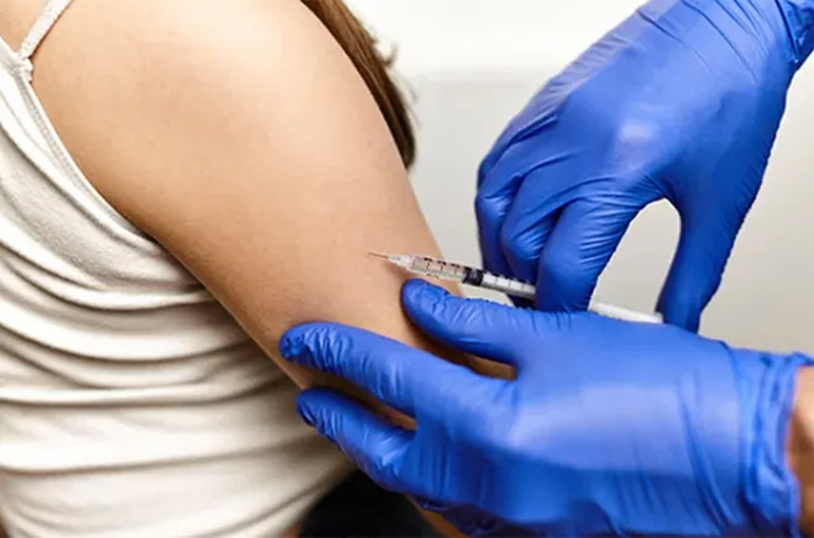
Matric

Campuses to reopen – but only for the vaccinated
Published
2 years agoon
The class of 2021 is unlikely to attend university remotely this year like its 2020 peers, but it will have to be vaccinated to attend. It may not do everything on campus, but university life will go back to being a mostly campus-based experience.
The University of the Witwatersrand (Wits), University of Cape Town (UCT), University of Pretoria (UP), and Stellenbosch University (SU) either have a mandatory vaccination policy or are likely to implement it.
On 1 January 2022, the Wits Council passed the university’s COVID-19 mandatory vaccination (MVax) policy. To access Wits’ precincts, you will be required to be vaccinated against COVID-19 unless you have been granted reasonable accommodation. Wits University’s cut-off date to be vaccinated or to have applied for reasonable accommodation is 1 March 2022. All students in Wits’ residences will have to be vaccinated.
“The policy seeks to enable the return of employees and students to the university precincts while protecting the health and safety of the Wits community and all who work, live, learn, and participate in activities on campus,” says Buhle Zuma, Wits senior communications officer.
Wits staff and students were invited to upload their vaccine certificates from 20 January this year. “The response has been overwhelmingly positive, with almost 10 000 certificates having been uploaded in just three working days,” says Zuma.
Once the vaccination status of Wits students is verified, it will be uploaded to their online profiles and will be linked to their access cards, thus giving them entry to the university’s campuses.
Those who are granted reasonable accommodation may also gain access to the university’s precincts, but will have to take weekly antigen tests. They may not be permitted to participate in group activities.
This year, Wits will continue with its blended approach to learning. “This means some activities will take place on campus including experiential learning, interactive learning, and teaching sessions,” Zuma says. “Other activities such as presentations and formative assessments may be conducted online.”
First-year students will commence their journey at Wits with the Gateway to Success programme, a compulsory three-week programme starting on 7 February 2022. It will include some online and some on-campus activities.
Asked how Wits will respond to the concerns raised by the Student Representative Council (SRC) over mandatory vaccination, Zuma says, “The university has made several arrangements to ensure Wits’ students and staff are able to comply with the MVax policy.”
One such arrangement is Wits’ hosting of a vaccination and testing site, which will offer access to vaccines and boosters. “The university continues to engage with the SRC, most of whom are vaccinated,” says Zuma. “We believe the majority of students and staff at Wits have been or will get vaccinated before 1 March.”
UCT’s draft policy proposes the introduction of a campus-wide vaccine mandate that will apply to all staff, students, and other visitors.
All events held on the university campus and in residence are also covered by this draft policy.
“The draft policy provides for staff and students to apply for an exemption to the vaccine mandate on narrow medical grounds and on the grounds of sincerely and intensely held beliefs grounded in religion and/or conscience,” says Nombuso Shabalala, UCT’s head media liaison.
In October 2021, the UCT’s Senate approved the Framework for Teaching and Learning in 2022.
One of the basic elements of the framework requires students, whether they are South African or international, to be in Cape Town throughout the academic year and to come on campus as required.
UCT has prepared study spaces on campus that align with COVID-19 protocols. In addition, students will have increased contact time with academic staff.
Almost 1 500 kilometres away, UP is consulting staff and students about vaccination and other COVID-19 measures. “We’re planning to finalise this process by the end of this month,” says Rikus Delport, UP’s director of the department of institutional advancement.
The university recently conducted a survey in which about 10 000 students participated. More than 70% indicated they were fully or partially vaccinated. Just less than 10% of students said they were planning to get vaccinated.
UP started opening up campus to a limited number of students under strict health regulations during the last quarter of 2021, and now plans for a more significant re-opening for the 2022 academic year.
“Because of the restrictions on the size of gatherings and venue occupancy, combined with the large number of students in some of the undergraduate programmes, it’s not possible to resume all contact classes immediately while ensuring everyone’s safety,” says Delport. “Nevertheless, we’re looking at introducing face-to-face classes on a rotational basis for at least some of the programmes.”
Travelling back to the Western Cape, on 3 December 2021, SU embarked on a process of public participation on its intended institutional vaccination rule. “The period of public participation came to an end on 15 January 2022, and comments and inputs are now being considered,” says Martin Viljoen, SU’s media manager. “The vaccination rule will then be finalised for internal consultation and approval.”
The institutional rule states that no person will be registered as a new SU student or re-registered as a SU student, and no person may enter the university’s campus unless they have been fully vaccinated against COVID-19 or are exempted either automatically or by SU.
How successful has online learning been?
“Students have readily participated in online classes, with pass marks remaining on par with that of previous years,” says Zuma.
According to a 2020 survey conducted among UCT students about their experience of emergency remote learning, students overwhelmingly missed in-person contact, but many valued the much greater flexibility provided by online learning and the freedom to learn at their own pace in a way that suited them.
“Students reported deeper engagement with the material and appreciated open-book assessments, which were less stressful than traditional sit-down written exams,” says Shabalala.
UP’s experience with hybrid teaching and learning made its transition to online learning fairly smooth when the pandemic struck.
“A large number of our programmes were available online for a number of years,” says Delport. “In spite of issues such as connectivity problems and the lack of online devices, we managed to support students by telephone tutoring, the delivery of material to the homes of students in remote areas, and by providing them with data and laptops.”
Shabalala says the challenges experienced by students included finding a quiet space at home to study, interrupted electricity supply, mental-health issues, course-content overload, not liking the designs of some course websites, difficulties understanding the assessment instructions, not feeling strongly connected to other students in the online education space, insufficient data for remote learning, and not seeing the value in live sessions on synchronous tools such as Zoom or Microsoft Teams.










